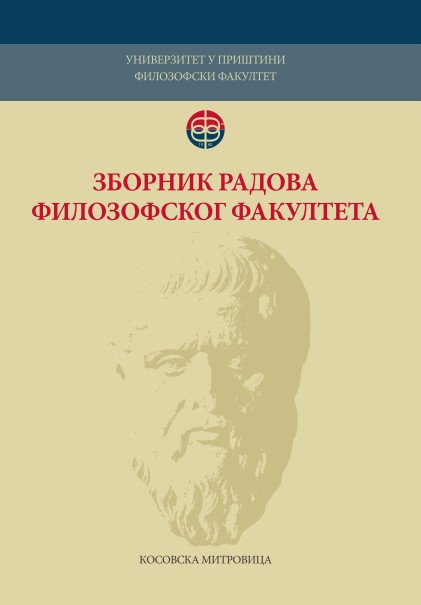L’influenza positiva di alcuni sport sull’apprendimento e second language acquisition
Positive Influence of Certain Sports on Learning and Second Language Acquisition Processes
Author(s): Iren BoyarkinaSubject(s): Language and Literature Studies, Foreign languages learning
Published by: Филозофски факултет, Универзитет у Приштини
Keywords: sports; cognitive abilities; neuroscience; language teaching; Second Language Acquisition.
Summary/Abstract: Various research convincingly demonstrated positive influence of certain sports and physical exercises on brain and brain functions in general, and on cognitive functions in particular. As it has been demonstrated, efficient and well-developed cognitive functions enhance all human activities and are of crucial importance for learning. In particular, this paper focuses on the positive correlation between certain sports and language learning and its relevance to the Second Language Acquisition studies (SLA). In SLA, students’ ability to process input strongly depends on their cognitive abilities, namely, their abilities to process audio and visual input. As various researchers demonstrated, some sports enhance sportsmen’s abilities of audio and visual perception; these developed cognitive abilities may, in turn, enhance SLA process. The paper analyses some data collected during the experiments with three groups of students, age 20-23: basketball players, judo wrestlers and control group whose members practiced sports only 2h/week. Three groups were exposed to three types of stimuli: (reverse chess pattern, tone click, flash of light); their brain activity was monitored by EEG. The obtained results demonstrated that basketball players manifested better-developed cognitive abilities responsible for the perception of audio and video stimuli. They were also faster in making decisions on the basis of the video/audio stimuli perceived. Similar results were obtained by American psychologists (University of Illinois, Urbana-Champaign). Their study involved 87 Brazilian volleyball players and 67 persons who don’t practice sports. The results were published in Frontiers in Psychology. Experiments have shown that athletes are usually better in controlling their reactions and are able to slow down their reactions, if necessary. According to the professor of Psychology Arthur Kramer, one of the authors of the research, “Athletes can perceive information faster and switch quicker between different tasks than those who don’t practice sports.” During the experiment, all the participants were asked to perform tasks to test their cognitive abilities (information perception, memory, reactions). The most interesting discovery was that the athletes had significant cognitive advantages over women and men who had not practiced sports. Volleyball players were faster in reactions, in noticing differences in the pictures, in identifying the missing details in puzzles. The process of auditory and visual perception and processing involves many neural structures: from primary units of signal processing sensors to higher levels of processing, responsible for stimuli recognition and decision-making. As it is known, individual waves of cognitive evoked potentials reflect the involvement of certain neural mechanisms of visual and auditory systems in processing and recognition of stimuli of corresponding modality. Wave characteristics can indirectly indicate working speed of specific units of the neural circuit and the number of neurons involved; it may allow measuring the influence of various sports training loads on the development of neural chains involved in audio/video stimuli perception, processing and decision-making. These aspects are also considered important for input processing in SLA. The paper analyses positive contribution of certain sports to learning in general, and Second Language Acquisition in particular, using neuroscience, psychological and socio-cultural approaches.
Journal: Зборник радова Филозофског факултета у Приштини
- Issue Year: 51/2021
- Issue No: 1
- Page Range: 309-320
- Page Count: 12
- Language: Italian

